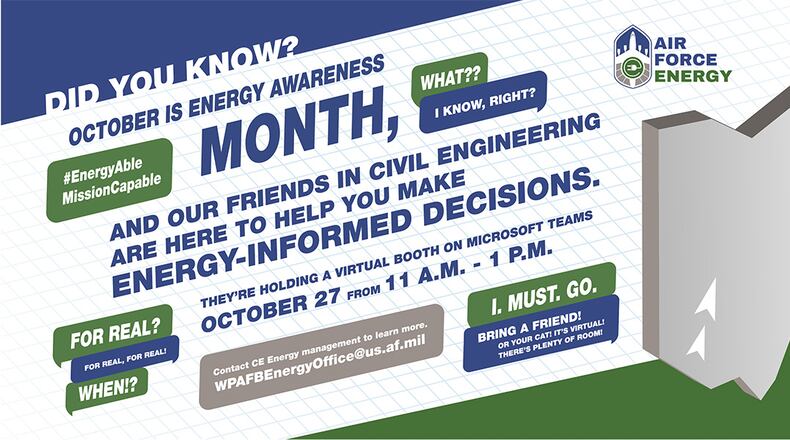This water is being piped underground from a central plant at temperatures exceeding 300 degrees Fahrenheit and pressures above 200 pounds per square inch. In contrast, domestic hot water in our homes generally runs at about 105 degrees and 30 psi.
The wear and tear on building heating water pipes at this level is much greater than domestic use. This, combined with the added factor the pipes are over 40 years old, has driven the 88th Civil Engineer Group to execute much-needed repairs on the system.
The decision was made not only for safety and resiliency, but also to save energy and lower base operating costs in the long run. The timing of the repairs was born partially out of necessity as the high-temperature, hot-water lines were not being used to heat buildings in the summertime.
The concept of heating through hot water is simple and has been in use since the late 1800s.
For Wright–Patterson Air Force Base’s Area A, a central plant heats water in a boiler (much like heating a water pot on the stove) via natural gas burners. This hot water is then piped to buildings where a device blows air over the hot pipes to warm the inside. After the heat is pulled off the pipes, the remaining cooled-down water is then returned to the central plant to be reheated and sent back out again.
The problem arises when these pipes begin to leak and hot water escapes. To compensate, more hot water must be made at the plant, which requires more natural gas to heat the water. This is where money comes into play.
The base purchases over $4 million worth of natural gas every year, and a large portion of that goes to the central-heating plants. So this wasted energy has an impact on our collective wallets.
The 88 CEG Energy Branch, along with the Operations Branch, identified this waste several years ago and initiated plans to repair these lines.
The roadblocks and construction barriers in Area A are a direct result of 88 CEG’s continuing effort to be the best steward possible of federal dollars. This effort also supports one of Wright-Patt’s overall missions to be the most efficient and resilient base in the Air Force.
October is Energy Awareness Month and a good time for all Air Force personnel, both active duty and civilian, to reflect on ways energy can be conserved or made more efficient. The better stewardship we possess for our military assets, the better we can serve our country.
If you have an energy-savings or resilience idea, reach out to 88 CEG’s Energy Branch at WPAFBEnergyOffice@us.af.mil.
About the Author
